I spend a fair bit of time writing about SEO. On our own blog, on my Search Engine Land Column, and just generally around the web. One acronym I have never been too keen on is SERP. This brief post explains that acronym and any other related SEO SERP jargon.
SERP – A Definition
SERP stands for Search Engine Result Page. So the SERPs are the search engine result pages. These are pages of results for any given search query. These SERPs will also consider other variables such as personalisation, device, and user location. A SERP will typically include organic results, features, and various advertisements.
SERP – Example
The following is an example SERP for the search query “SEO Birmingham“:
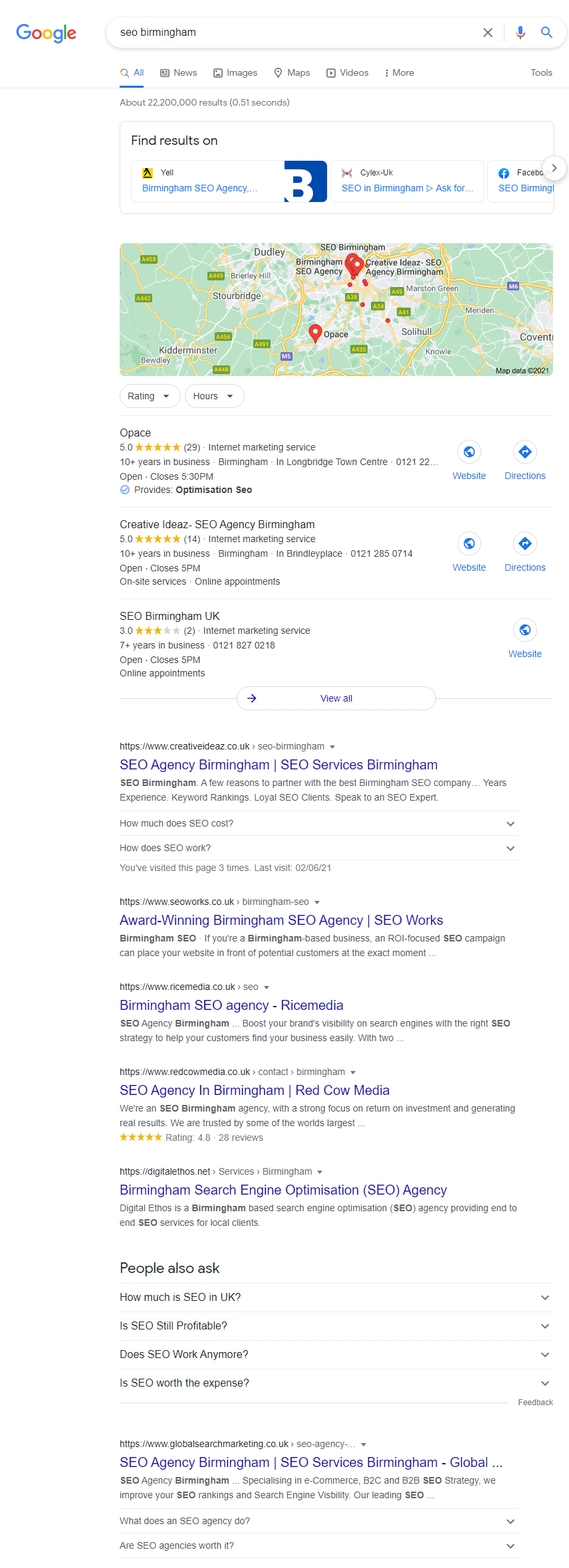
Here we have three different kinds of results:
- Paid text ads
- Local business listings
- Organic results
The paid results are just that – paid adverts managed via Google Adwords (PPC is something else we can help with).
The Many Faces Of Google SERPs
The example above is pretty simple. But there are myriad other SERP features. Google now tries to answer questions for people directly in the search results. And depending on the nature and intent of the search query the SERP will include a variety of different features.
Some of the most common SERP features are as follows:
Shopping Results
Shopping results can feature above or to the right of the search results in a block of 5 above or 9 to the right. These are sponsored (paid) listings and are managed via shopping campaigns within Google Adwords.
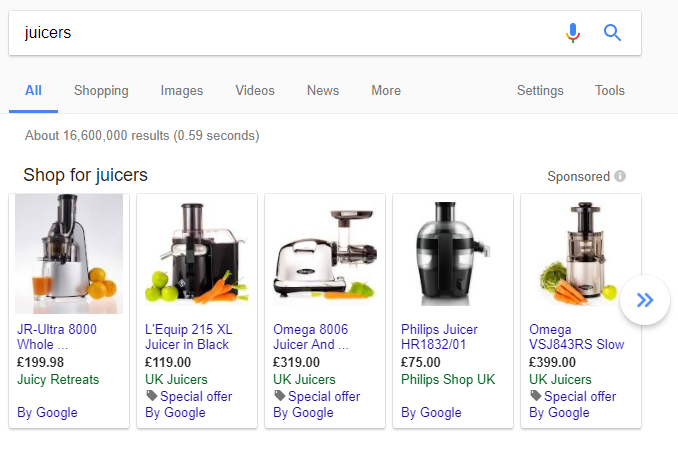
Knowledge Panel
Google also provides knowledge panels that detail information about a given search term. These typically appear to the right of the main column of paid and organic results.

Featured Snippets
Featured snippets provide direct answers to questions above the search results and exist in the highly desirable position #0. This means a company can have a featured snippet and typically a listing in the top 5 organic results, doubling your exposure.
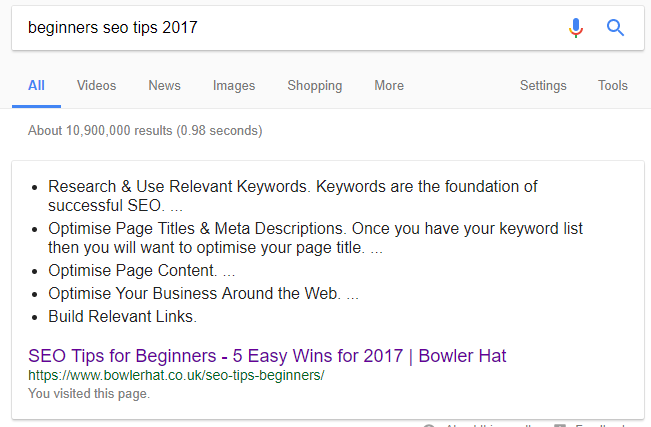
People Also Ask
Often paired with a featured snippet are the “People also ask” results which provide a set of further, related questions and which again can typically sit above the organic results (or sometimes embedded within). The example below shows how the “People also ask” results sit directly below the featured snippets – with organic results sitting further below those.
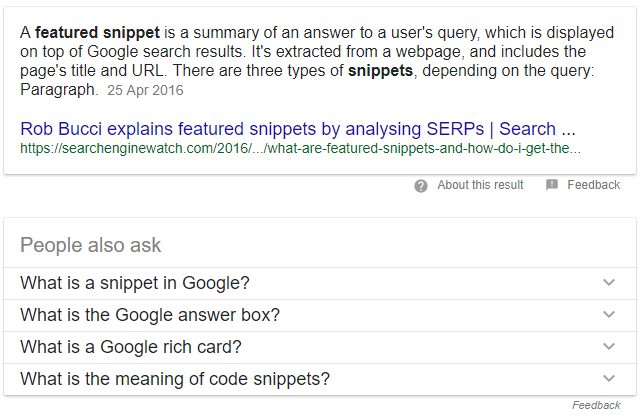
These are particularly interesting as clicking on any listing will expand on the question, providing an answer and adding more questions to the bottom of the list. This pushes the actual organic links ever further down the page. This also exposes an answer, the option to search for that specific question, and adds two more questions to the bottom of the list.
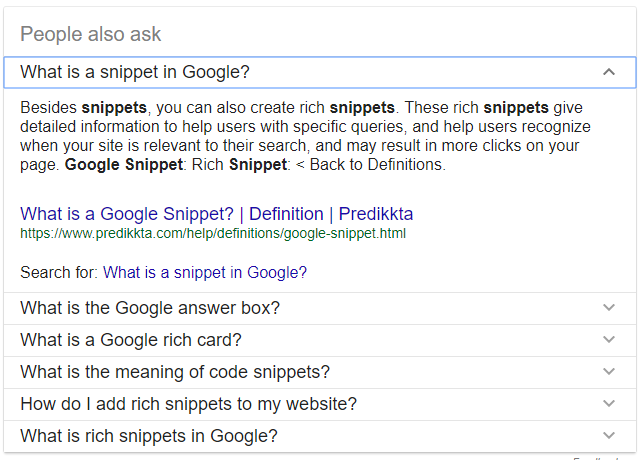
Specific Answers
You can also get a range of specific answers directly in the search results. Maybe have a play with this yourself and ask some questions:
- How old is Noel Gallagher?
- What is my IP?
- Where am I?
- What is the square root of 25
- What is the phone number for Virgin mobile
- Bowler Hat SEO phone number
Go back a few years and there were many sites or advertisers providing these kinds of answers, but now you can get that answer without having to ever leave the search results page.
SERP Tools
Google also provides a range of tools like a calculator that you can get directly in the search results.
Why You Should Care About The SERPs
If search is a good vector for your business then you have to understand the landscape for the range of search keywords you target. What does the page look like? And often, when SEOs are talking about these differences in page results they will use the SERP abbreviation or acronym. But what they ultimately mean is the Search Engine Result Pages for that query.
The key to good marketing is to understand the competitive landscape. The SERPs are your battleground. Get good intelligence on the battleground and you have a strategic advantage over your competition. Time spent here understanding the SERPs will only add value to your search campaigns.
If you have any questions or we can help in any way, or you just want to pick our SEO brains, then drop a comment below or give us a shout via our contact form.








